Download Free Vegan Starter Kit -
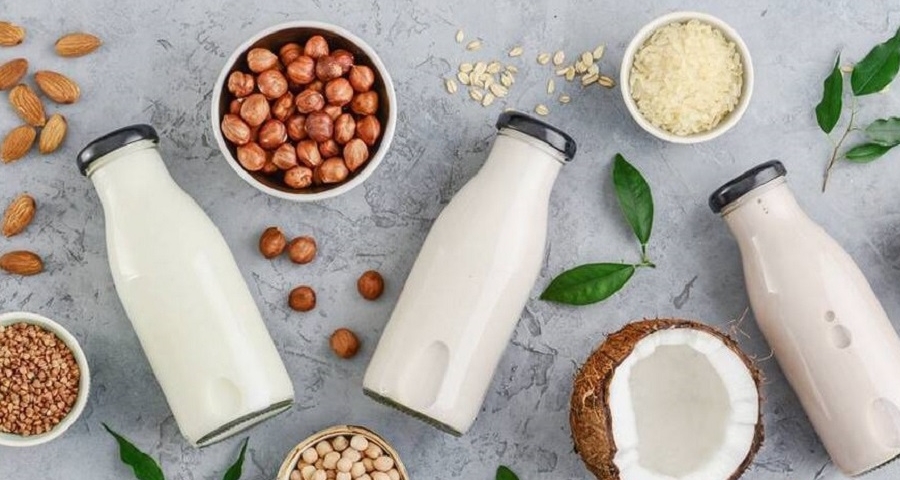
FIAPO Calls Upon FSSAI To Withdraw Notification That Can Change The Nomenclature Of 'Milk'
7 September 2020
The Federation of Indian Animal Protection Organisations, FIAPO, which is India’s apex animal rights body has strongly opposed the Food Safety and Standards Authority of India's (FSSAI) proposed regulation that aims to change the nomenclature of the term 'Milk'. FSSAI's proposed regulation titled 'Dairy Analogue Draft Notification' wants the word 'milk' and its usage to be exclusive for the dairy industry. If enforced, the draft notification will prevent non-dairy, plant-based milks and dairy-derived products from being termed 'milk' in India. The notification states that an imitation product that is designed or structured to mimic or offered as an alternative/replacement to a 'milk' or milk product should not use the term 'milk’ if the said product is derived using non-dairy sources.
FIAPO has written a letter to the CEO of FSSAI demanding the obliteration of Regulation no. 2 (ii) (ea) of FSSAI's draft notification dated 21 July 2020.
Withdraw Draft Notification: FIAPO to the FSSAI
FIAPO informed VeganFirst that it strongly opposes the Regulation no. 2 (ii) (ea) of the draft regulation since it aims to challenge the age-old established practices of India and change the nomenclature of the term “Milk” which has been traditionally used for both plant-based and animal-derived milk without any prejudice to either.
According to Ms Varda Mehrotra, FIAPO’s Executive Director, “A growing section of the Indian population has started seeking out plant-based milk and cheeses to avoid certain attributes in dairy such as saturated fat and cholesterol. In addition, many consumers cannot consume dairy due to allergies or intolerance. Consumers can easily obtain nutrients such as protein and calcium from plant-based milk. Studies have shown that most people’s bodies absorb 75% more calcium from soy milk than from cow’s milk."
FIAPO is India’s leading animal protection body that works with over 160 member organisations, 200 supporter organisations and over 1,000 activists in more than 70 cities across India.
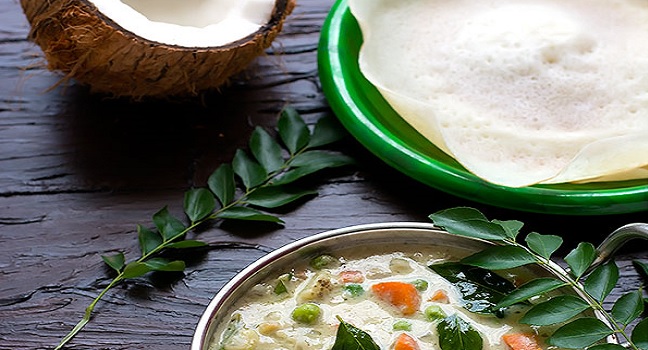
Veg stew
Threat To Age-Old Culture
Non-dairy milk (such as coconut, cottonseed, almond, soy, and flax milk) has long been part of ancient Indian culture and several languages and states in India have long-called plant-derived juices 'milk'. For instance, in South-Indian languages like Telugu, Tamil, Kannada, Malayalam, the word 'milk' is used to describe juices extracted from nuts. In most of South India, nut-derived juices are affixed with the words 'haalu' (Kannada), 'paalu' (Telugu), 'paal' (Tamil), 'paal' (Malayalam) all mean milk. In Karnataka, poppy seed milk would mean 'gasagase' (poppy seed) 'haalu' (milk) and in Telangana and Andhra Pradesh, liquid consumed after boiling white or brown rice is called 'biyam paal' that translates to rice (biyam) milk (paal). In places like Kerala, the entire cuisine is largely made with 'tennappal' or coconut milk as we know it - it's the indispensable hero of Kerala cuisine!
The age-old, ancient practice of our grandparents referring to plant-based milks as 'milks' is deep-rooted in our culture (and memories), and ending it would erase an age-old tradition spanning different languages and geographical boundaries - all at the cost of protecting the interests of the dairy lobby and industry.
Besides usage in Indian languages, the word 'milk' had a second definition as 'the white juice of certain plants' in first edition of Noah Webster's American Dictionary of the English Language published in 1828.

Khow Suey. Photo Source: Burma Burma
Plant Milks Used Globally
Plant-derived milks are abounded in many other traditional cultures across the globe: Coconut milk, made by soaking grated coconut in water, has been the backbone of Southeast Asian and African cuisines for centuries if not millennia. Red Thai curry or Green Thai curry, coconut milk is fundamental to it. Its also the ingredient in popular dishes like Thai Massaman Curry and Burmese Khow Suey. In fact, the languages Thai, Filipino and Swahili have a separate, word specifically for coconut 'milk', while Farsi, Hindi and Punjabi, use 'milk' to describe both animal-based and plant-based secretions. Wikipedia describes coconut 'milk' as a very popular food ingredient used in Thailand, Malaysia, Indonesia, Singapore, the Philippines, Sri Lanka and South India. We were fascinated to discover that coconut milk is also used in Maldivian, Filipino, Hawaiian, Vietnamese, Brazilian, Venezuelan and Colombian cooking!

Changes to current terminology of milk will cause confusion among consumers
Misleading For Lactose Intolerant
A recent news report stated that 60% of Indians suffer from lactose intolerance and most don’t even realise it. The draft notification will cause inconvenience for the people whose bodies reject animal milk and opt for substitutes like coconut milk, almond milk, soy milk, oat milk etc. If plant milks are classified as 'juices', 'beverages' or 'extracts' instead of 'milks', the terminology will be misleading and cause confusion among consumers. Any changes proposed to the current system of use of the term ‘milk’ to exclude plant-based milk from its purview would be regressive for both the plant-based milk companies and the people who are lactose intolerant.
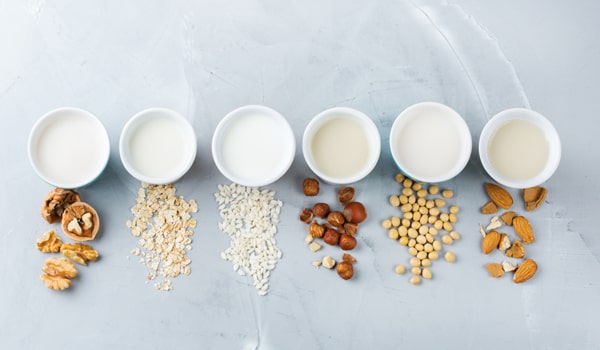
Plant milks are nutritious, wholesome & affordable
Benefits Of Plant Milks
Each type of plant based (non-dairy) milk offers a unique nutritional profile, with a wide range of values for protein, carbohydrates and fat, along with vitamins and minerals. It is affordable, convenient, desirable, nutritional, and sustainable. Apart from its health and environmental benefits, it is an important part of the diet of those who are lactose intolerant.
FIAPO And Co. Unite
BJP Lok Sabha Member of Parliament Maneka Gandhi who is also chairperson of the NGO People for Animals (PFA), has also strongly criticised and opposed the controversial notification last month. Animal activists, campaigners, ethical vegans across the country are voicing their concerns against the draft notification.
What You Can Do
VeganFirst urges its readers to submit objections to this Amendment to FSSAI. Objections may be addressed to the Chief Executive Officer, Food Safety and Standards Authority of India, FDA Bhawan, Kotla Road, New Delhi- 110002 or may be sent by e-mail at regulation@fssai.gov.in until 21 September 2020.
You can also submit objections for the notification to FSSAI via FIAPO's website by clicking here.
Let's Continue To Innovate
The plant-based industry has also been a source of constant innovation, generating employment and revenues for the Indian economy. The regulation no. 2 (ii) (ea) of the said draft Notification, if enacted, will have a negative impact on the plant-based industry, economy, livelihood of people, traditional cultural practices and dialects.
Like?
READ: FSSAI Against Plant-Based Milks' Classification as Milk; Invites Public Opinion
READ MORE: Milk Is Unhealthy. Here's Why!
AUTHOR

trending
2.png)
Be a Vegan First Informer
Send us buzzworthy news and updates
Explore
Contact Us
About Us
Stay Connected
Copyright ⓒ 2017-2023. VEGAN PASSION PRIVATE LIMITED. All Rights reserved.
For more information, please write to hello@veganfirst.com
Registered Office Address: 55, 2nd floor, lane 2, Westend Marg, Saidullajab, Near Saket Metro Station, New Delhi, Gadaipur, New Delhi South West Delhi, DL

2.png)

.png)
.png)
2.png)
2.png)


1.png)

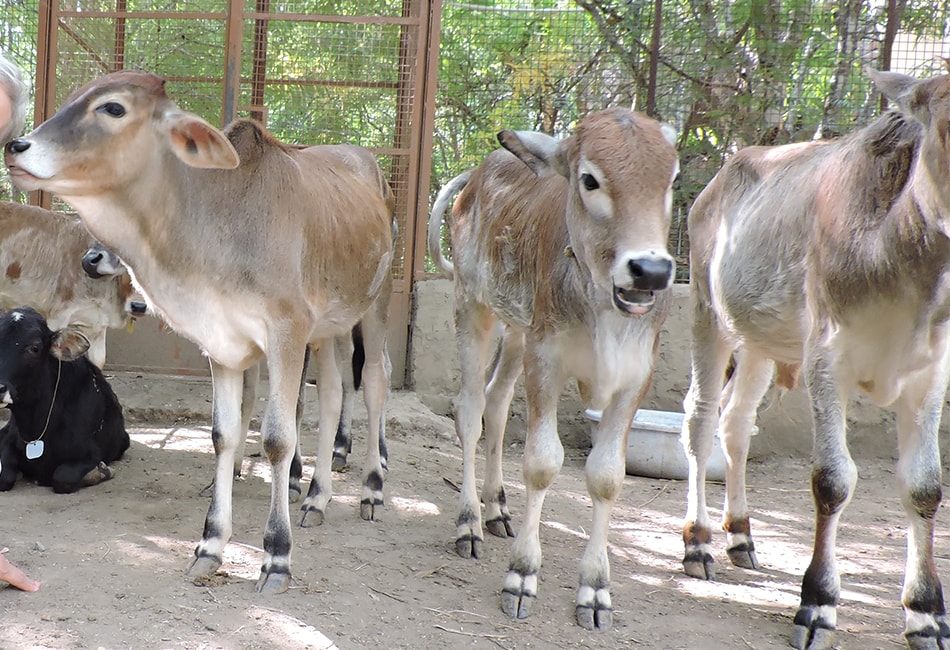
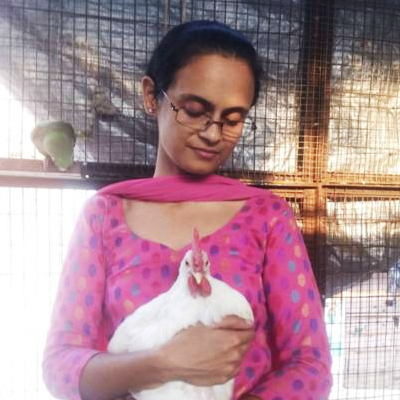




3.png)



